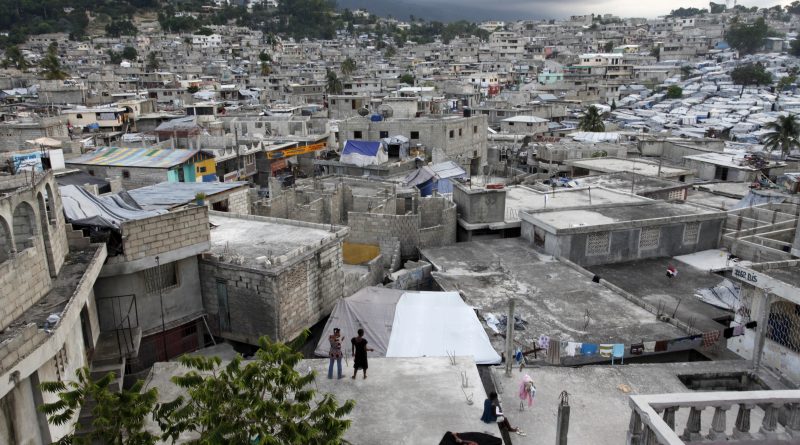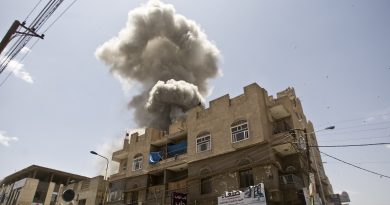Haiti’s Political Crisis and State of Underdevelopment
James Murray
Staff Writer
On November 4, Haiti’s acting prime minister, Ariel Henry, dismissed several politicians following accusations of their endorsement of local gangs, reports Al Jazeera. The politicians in question, Joseph Lambert and Youri Latortue, are accused by both the U.S. and Canada of enabling, endorsing, and protecting the powerful Haitian gangs that have been terrorizing the region for an extended period. During this time, Haitian citizens have been prevented from safely traveling, working, and receiving education. Additionally, the two former presidents of the senate were able to support the violent gangs through money laundering and corruption, along with implicitly being involved in the trafficking of illicit drugs. According to Al Jazeera, a 2010 U.S. diplomatic cable released via Wikileaks depicted Latortue as “The most brazenly corrupt of leading Haitian politicians.”
Haitian police recently seized control of a fuel terminal in the Haitian capital Port-au-Prince, which had been occupied since September by G9, a top gang holding power and territory in the area. The assault strategy of the ruling gangs has been to cut off civilians’ access to fuel, medical supplies, water, and food. The fuel terminal blockade and monthslong standoff, on top of a recent cholera outbreak, have created a dire humanitarian situation. Foreign Policy reports that nearly 100,000 Haitians have fled their homes and as many as 100,000 children under five face severe malnutrition.
The current collapse of Haiti has transitional prime minister Ariel Henry calling for international intervention including the deployment of a military presence into the country. Haitian citizens are wary of this because of the United States’ history of international intervention and military stationing within the country. According to Foreign Policy, the U.S. has a long history of militarily occupying Haiti, officially invading for the first time in 1915. Since then, the U.S. has invaded Haiti multiple times and has been accused of many human rights abuses, according to The Guardian. Citizens in both the U.S. and Haiti disapprove of another foreign military involvement. According to The Hill, a broad coalition of civil society groups wrote in a direct letter to president Joe Biden pleading for him to “respect the fundamental rights of the Haitian people to shape Haitian solutions.” They also expressed concern that any U.S. intervention would strengthen Henry’s grasp on power, despite not having a democratic mandate.
The turmoil and violence spiraling in the wake of the recent assassination of President Jovenel Moïse in July 2021 have put immense pressure on the government. The presidency was riddled with accusations of fraud, corruption, and questions of legitimacy. Additionally, Moïse’s presidency was set to begin in 2016, but due to serious allegations of fraud, it didn’t begin until late 2017. According to the Council on Foreign Relations, Moïse was assassinated in July 2021 and U.S. authorities arrested several mercenaries, trained in the U.S., who were suspected of conducting the assassination. Current prime minister Ariel Henry came into power mere days before the murder, and soon after was accused by Haiti’s top prosecutor to have been in contact with a key suspect. Haiti has yet to hold a presidential election since the assassination.
Haiti’s recent political and health crisis has prevented the Caribbean from further economic development. According to The World Population Review, Haiti ranked as the western hemisphere’s poorest country, with an average gross national income of $1,320 per person. Several factors have contributed to the stymied development of Haiti, including its vulnerability to natural disasters in the Caribbean, political instability, and gang violence. Despite domestic issues, many point to the main problem being Haiti’s history of colonization, foreign occupation, and invasions. Haiti was originally a French colony, and won its independence in 1804, despite not being recognized by nations such as France and the U.S. until much later in the 19th century.
French colonization plagued Haitians, as they were often used as slaves and died at a young age. The U.S. also had a long history of occupying Haiti, with the occupation between 1915 to 1934 being one of the longest in U.S. history, according to The New Yorker. During this period the U.S. marginalized black Haitians and helped consolidate power among a few elites. The U.S. also invested in Haiti and used forced labor in many instances. The U.S. subsequently invaded Haiti in 1994 as well to remove its government and committed many human rights abuses. Even UN Peacekeepers sent to Haiti to help rebuild after the devastating earthquake in 2010 were responsible for a deadly cholera outbreak that killed thousands, according to NPR. As Haiti’s political and economic troubles deepen, the proposal for foreign interference has garnered more skepticism than appeal.
Image courtesy of World Bank


